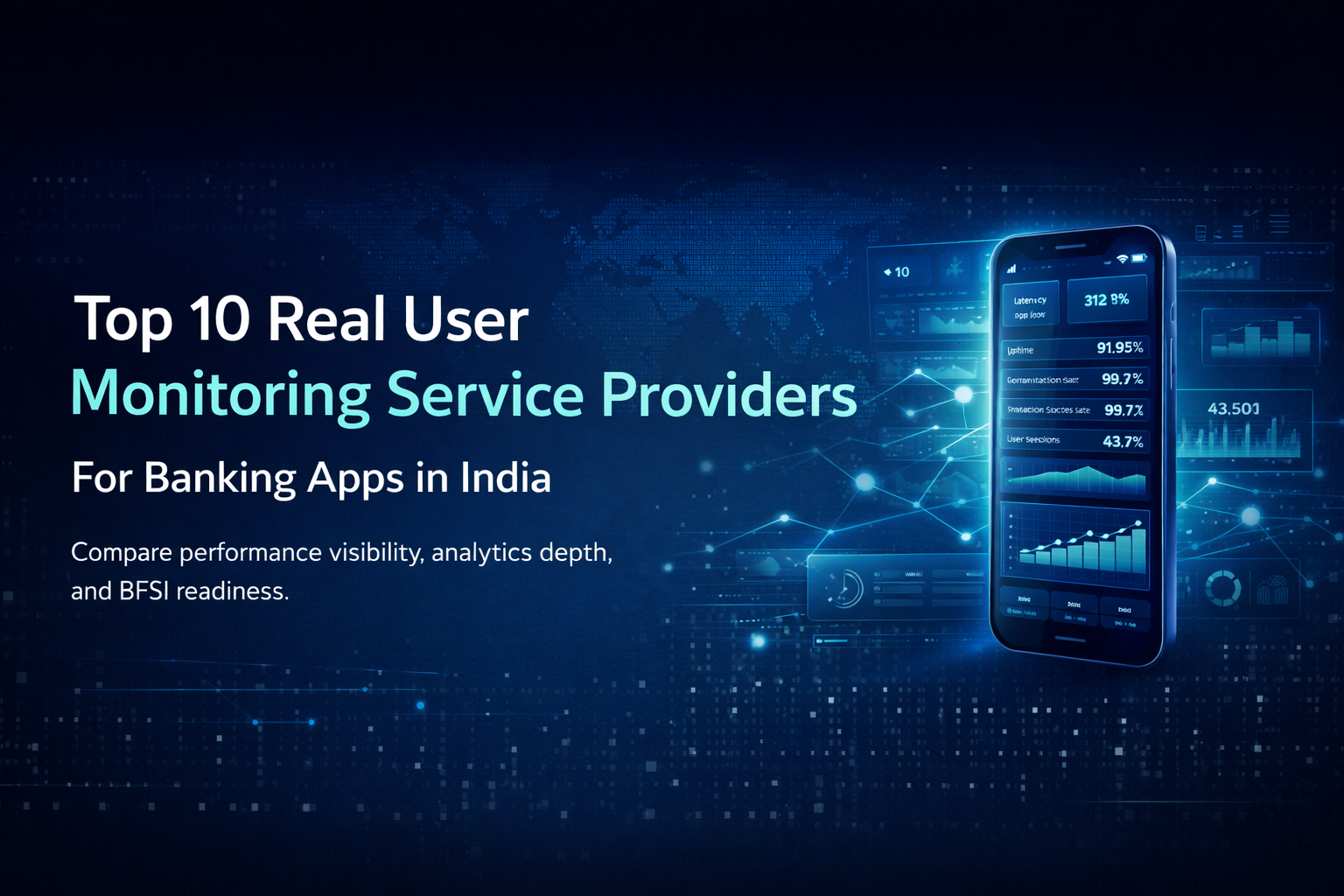Digital transformation in banking has profoundly changed the way consumers interact with their banks. Today, three-fourths of the U.S. population prefer managing their finances through digital channels like mobile apps(48%) and online banking(23%).
Globally, this trend is mirrored in countries like India and South Korea, and nearly 70% of banks in the Middle East began offering remote account opening services in 2022.
As digitization becomes the norm, banks are turning to integrate more advanced technologies like AI to push further and stay competitive.
And why wouldn’t they?
Recent research shows that bringing technologies like AI into the mix could ramp up banking productivity by 22-30% and boost revenues by as much as 6%.
Enabling smart chatbots to handle customer inquiries efficiently and automating loan processing with rapid verifications—that is AI!
But it’s not just AI; there are other technologies too driving digital transformation in banking. So with this article, let’s closely examine the trending ones, their impact, and the challenges involved, to gain insights into how to approach this transformation.
Digital Technologies Utilized by Modern Banks
While digital banking adoption is widespread in the U.S., Gen Z’s engagement, at just 47%, trails other generations, pointing to their unique demands for faster, more flexible banking options.
To address this, we’ll explore how key technologies like Artificial Intelligence (AI), Cloud Computing, and APIs significantly enhance banking operations and services for today’s digital-first customers.
Cloud Computing
Cloud computing technology is more reliable, cost-effective, scalable, and customizable than on-premise solutions. By adopting this technology, banks can significantly reduce application downtimes and latency, thereby providing customers with continuous and seamless access to their accounts.
What’s more?
Cloud computing lets banks centralize all their customer data. Whether you’re a bank employee in New York or London, you can access the same information in real-time, helping everyone from customer service reps to financial advisors collaborate more effectively to solve customer queries.
However, despite these substantial benefits, 90% of banks still have not fully embraced cloud computing, often limiting their usage to partial data and application hosting. This selective implementation restricts their ability to fully capitalize on innovative business models.
One significant missed opportunity is Banking-as-a-Service (BaaS).
By fully integrating cloud solutions, banks could enable non-banking entities to offer core banking services, such as payment processing and digital wallets, on a subscription basis. This integration not only streamlines operations by utilizing the cloud’s scalable infrastructure but also opens new avenues for revenue and partnerships.
However, transitioning to cloud computing requires careful planning. If not done right, it can lead to some headaches like system downtimes, poor data quality, and even security issues.
We’ve seen our fair share of hiccups at Avekshaa. For instance, one of our clients had a cloud-based banking system that was supposed to handle 300,000 transactions daily but fell short at just 29,000. With some smart tweaks using our P-A-S-S™ Assurance Platform, we got them up to speed, reducing memory usage by 60% and improving server performance and efficiency.
Must read about Seamless Cloud Migration for Legacy Banking Systems
Mobile Banking
The rise of mobile banking is a key pillar of digital transformation in the banking sector, with the market projected to escalate to $7 billion by 2032. This technology isn’t just enhancing the banking experience; it’s redefining it, offering unprecedented convenience and access to banking services right from a customer’s smartphone.
But with the integration of smart and advanced technologies comes great responsibility. Take, for instance, the recent outage at PNC Bank, which revealed how vulnerable these systems can be. Such disruptions not only inconvenience customers but also pose serious questions about security and reliability—factors that can significantly impact a bank’s reputation.
To safeguard a bank’s reputation, it becomes necessary to ensure the performance, availability, and scalability of mobile banking applications. Partnerships with experts like Avekshaa Technologies could be absolutely transformational.
Avekshaa specializes in digital transformation and application performance management and has helped numerous banks develop and test tailored mobile banking applications that ensure a smooth user experience across various geographies, network configurations, devices, and operating systems.
Application Programming Interfaces (APIs)
According to a recent S&P Global report, U.S. banks are grappling with increasing funding costs, a trend exacerbated by the Federal Reserve’s rate hikes. This economic pressure is challenging the banks’ ability to sustain their profit margins. In response, banks are investing in income-generating technologies like open banking and embedded finance.
But these technologies add another layer of risk—they allow third-parties access to personal banking information like customer addresses, bank account numbers, etc.
To ensure safe data access, banks are powering these innovations using APIs. APIs act as secure gateways that control third-party access to financial information, enabling banks to manage risk effectively while fostering innovation. These interfaces are customizable and scalable, allowing banks to integrate them seamlessly with their existing systems and workflows at a minimal cost.
Presently, 50% of banks are utilizing APIs to enhance internal processes, and this trend is expected to grow.
Artificial Intelligence (AI)
The AI market in banking is expected to reach $64.03 billion by 2030, growing at a CAGR of 32.6%, spearheading digital transformation in the sector.
In fact, in The Economist, nearly half of the banks surveyed (46%) view AI as crucial for achieving their business goals. Moreover, 81% of banking executives outside the IT function believe unlocking AI’s value is a key differentiator between leading and lagging banks.
This influence of AI is prominently visible in several key areas:
Automating customer onboarding
Enhancing fraud detection
Improving risk assessment
Streamlining customer support through chatbots and virtual assistants
Beyond these customer-facing enhancements, AI also profoundly transforms banking IT operations through AIOps. This technology automates the management of complex IT infrastructures essential for mobile and online banking services.
AIOps employs machine learning and big data analytics to offer predictive insights, enabling preemptive actions to maintain system health and prevent disruptions. It ensures continuous, real-time monitoring of the IT environment, instantly identifying and rectifying anomalies. This not only minimizes downtime but also upholds stringent quality standards across all digital services.
By automating routine tasks and streamlining decision-making processes, AIOps significantly boosts the efficiency and reliability of banking operations, ensuring a seamless and high-quality customer experience.
Must explore how AI is revolutionizing banking in three impactful ways.
While all these listed technologies are promising, it is crucial to understand and address the challenges associated with their implementation to ensure successful integration.
Discover How Digital Transformation is Shaping Insurance – Explore the top trends
Challenges of Digital Transformation in Banking
Here are some challenges decision-makers need to consider during digital transformation initiatives in banking.
Security and Compliance Issues
In 2023, 521 financial data breaches impacted over 43 million records, with banks being prime targets. This risk grows as banks expand their digital channels.
To protect against breaches, implement strict protocols such as:
Authentication Processes: Use 2-factor authentication, biometrics, PINs, etc.
In-House Servers: These are harder to hack as they require physical access, offering more security than cloud servers.
Compliance: Ensure adherence to regulations like PCI, DSS, and GDPR to safeguard customer data.
Underestimating Transformation Costs and Complexity
Digital technologies can enhance a bank’s value by simplifying processes and improving productivity. However, over half of digital transformation projects exceed their budgets due to underestimated complexities. Business leaders often go overboard on transformation initiatives without fully understanding the impact on existing processes, databases, and applications.
To ensure successful digital transformation, involve the right stakeholders from the planning stage:
IT Team: Provides insights based on existing systems and infrastructure.
Customer Success Team: Offers input on customer preferences.
Operations Team: Highlights potential effects on day-to-day operations.
Insufficient Planning During Data Migration
80% of banks just starting with cloud technology don’t have a solid plan for implementing it, especially when it comes to migrating data from old systems. This lack of planning is risky; Oracle reports that 80% of migration efforts fail due to unexpected complexities.
To ensure a smooth transition:
Conduct a Data Audit: Check your data for errors or duplications before you start migrating.
Automate the Migration: This reduces errors and speeds up the process.
Hire Experts: Consider bringing in specialists for a hassle-free data migration. Consultants can guide you during the process while offering suggestions to optimize the system.
For example, Avekshaa helped migrate data from 300 bank and ATM locations to a next-gen Finacle stack without errors.
Digital transformation in banking is complex and multifaceted. Navigating these challenges becomes easier by partnering with an experienced digital transformation consultant to harness the full power of your banking ecosystem.
Why Choose Avekshaa For Your Digital Transformation Endeavour?
Avekshaa brings over 12 years of experience implementing digital technologies across various sectors, helping over 60 enterprise customers achieve an average of 150% performance improvements in banking, FinTech, and telecom.
To ensure smooth digital transformation in banking, our approach covers:
P-A-S-S Assurance Platform: The foundation of Avekshaa’s approach, our P-A-S-S platform uses a shift-left strategy to pinpoint and resolve issues affecting your entire technology stack—from operating systems to application, web, and database servers.
Cloud Migration: Our cloud engineering offerings involve system readiness checks, database optimization, and performance testing to ensure your new system performs even in high-traffic scenarios.
Proactive Risk Mitigation: Our performance engineering approach identifies P-A-S issues early in the software development lifecycle, ensuring timely delivery within the budget.
Unmatched Expertise: We’ve completed some of the world’s largest digital transformation initiatives, including platforms with 20 million concurrent users.
Trusted by global leaders like Vodafone, HDFC Bank, HSBC, and others, Avekshaa is recognized for delivering reliable, world-class digital transformation solutions.
Interested in digitally transforming your bank? Contact Avekshaa today!
FAQ
1. What is digital transformation in banking?
Digital transformation in banking is integrating new technologies into existing banking systems and processes to seamlessly deliver secure banking services that improve the customer experience and efficiency and reduce costs.
2. What are the four types of digital transformation?
The four types of digital transformation in banking are:
Business model transformation
Business domain transformation
Business process transformation
Cloud transformation
3. What are the four pillars of digital transformation in banking?
The four pillars of digital transformation in banking are:
Omni-channel banking
Smart banking
Modular banking
Open banking
4. What are the digital transformation challenges faced by banks?
Security concerns, underestimating costs, and inadequate integration planning are significant challenges banks face during digital transformation.
5. Who is the top digital transformation service provider in India?
Avekshaa is the top digital transformation service provider in India. Their proprietary methodologies and platforms use Performance, Availability, and Scalability (P-A-S) engineering and management techniques to provide solutions to some of the most complex issues faced by banks worldwide. You can read more about their successes here.


